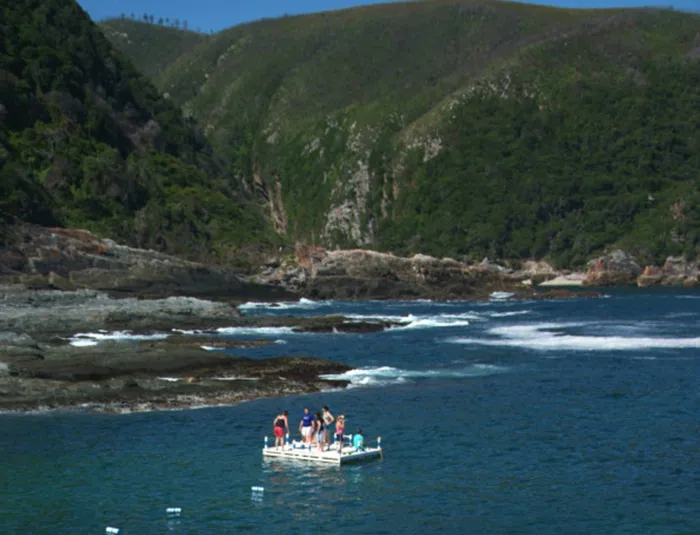
Unspoiled beauty: Fish breeding havens will be in jeopardy when four areas in the Tsitsikamma Marine Protected Area are opened for angling by locals. Unspoiled beauty: Fish breeding havens will be in jeopardy when four areas in the Tsitsikamma Marine Protected Area are opened for angling by locals.
Melanie Gosling
Environment Writer
TSITSIKAMMA residents are delighted that the government will allow them to fish in parts of Africa’s oldest marine protected area, proclaimed to help rejuvenate South Africa’s heavily exploited fish stocks.
They say they were never consulted in 2000 when the marine protected area was proclaimed and they have a historical right to fish there.
But marine scientists say the move by the Department of Environmental Affairs is a recipe for disaster and will “open up the heart” of a protected area to exploitation. They also say this move is ushering in a highly problematic way of allocating marine resources by allowing some people exclusive access to exploit a protected area.
Environment Minister Edna Molewa has published draft regulations to rezone the Tsitsikamma Marine Protected Area, part of the Garden Route National Park, to allow fishing to any South African citizens who live in the KouKamma Municipal area or within 8km of the coast between the Bloukrans River and Covie.
Once registered, they will be given permits to fish in four areas that make up about 20 percent of the area, which stretches for 58km from Nature’s Valley to the Groot River in the Eastern Cape.
Molewa said the decision to allow fishing had come after “a 20-year-old journey initiated by Tsitsikamma anglers.
SANParks spokesperson Nandi Mgwadlamba said the public was invited to comment. In the meantime, fishing would be opened “as a pilot project” on December 15.
Henrico Bruiners, chairperson of the Tsitsikamma Angling Forum, welcomed the move, saying: “It is done from a humanitarian point of view, otherwise people have to travel 50km to 60km to the west or 30km to the east to fish.”
UCT marine scientist Colin Attwood said the proposal defeated the point of having a marine protected area to protect heavily exploited linefish from fishing pressure, to conserve their genetic diversity and to help colonise depleted stocks.
He said nothing would be proved by running a pilot project.
Rhodes University marine scientist Warwick Sauer said:
“Linefish stocks are under threat from overfishing. A state of emergency was declared as a result in 2000. Fish in the protected marine areas have a chance to breed and reseed other areas. To open these areas to fishing is mind-boggling.”
melanie.gosling@inl.co.za
